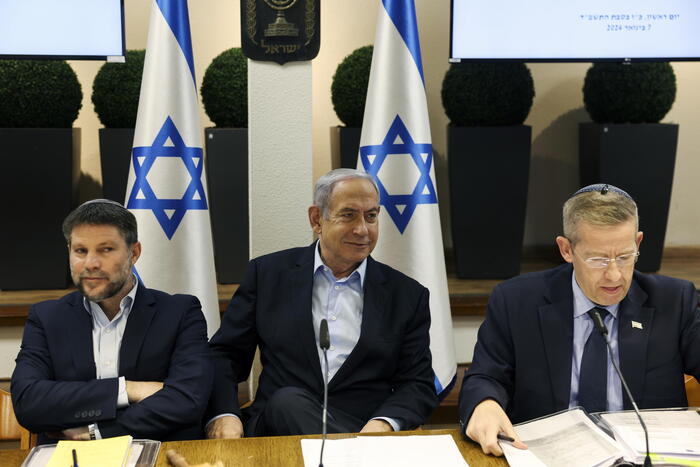In the story of religious Zionism, there has been an inherent paradox for years: the greater it succeeded in intervening in Israeli society, integrating itself into major intersections of the state and realizing its ideology for the whole of Israel - the smaller its political power. The more it deepens its anti-sector education among its graduates and further entrenches the imperative of shared responsibility for "all of Israel" - the more it minimizes its political power.
It is impossible to "occupy" the IDF Command Avenue for years, to "raise" the Shin Bet Chief, Deputy Chief of Staff, Champions, Chief of Police, University Presidents and Investigators, and proudly display knitted domes that become an integral part of the command elite , Our leadership, academic, economic, legal and media, but at the same time continue to dismiss as last year: run politically in a sectoral party. It does not go together, articulate; Two ways that contradict each other.
It is also impossible, on the one hand, to present to the public - at the political level - a separatist appearance, and on the other, in almost every aspect of life, to tell the same public that "the sky is the limit." In short and to simplify what: it is impossible to be non-sectoral in all areas, and only in the political sphere to remain sectoral.
For many years, the national religious community has been the most politically dispersed. Many parties, not necessarily religious ones, enjoy his electorate. It is estimated that its potential for power comes to about 15 seats, and some will say close to 20. But in practice, its direct political representation, through sectoral or semi-sectoral parties - is far from it.
In the 19th Knesset, for example, there were 20 religious MKs: 11 from the Jewish House, six in the Likud of our home, 2 in the future and 1 in the "movement". In the outgoing Knesset, Cohorts, alongside the seven MKs of the right (which are now split into two parties) , Five more Likud knitters or religious ones (Yuli Edelstein, Ze'ev Elkin, Tzipi Hotobelli, Shlomo Karei and Katy Sheetrit), three white paintbrushes (Hailey Trooper, Orit Farkash-Cohen and Elazar Stern), and one of the work (Revital Suyd).
For many years, most religious voters, religious Zionists, have been "rebelling" in sectors, including in the political sphere. That's how they were educated. That is why they do not separate the fulfillment of this education in almost every possible field from its realization in the political field as well. Their political representatives, apparently, demand that they actually continue to be sectoral only there. It doesn't work anymore. Bennett's temporary success and prosperity led by the Jewish House, and their peak achievement there - 12 mandates - stemmed from the fact that they also partially rebelled in the sectors, presenting the 2013 Jewish House as a joint set of religious and secular groups, with ambitions that clearly exceeded the sector. Almighty in law (past) and Bennett in confidence (now) fulfilled and fulfilled exactly what they have been preaching to for years. They are to the taste of most of the religious national public today.
Much of the knitted young people, unlike the ultra-Orthodox, see themselves first as Israeli Jews and only afterwards as religious. While their religiosity is distinct and profound, they are not willing to automatically tie it to the party. Many in the religious community today believe that there is the possibility of being part of a larger, less segmental desert. They are prepared to contain variance, or as Rabbi Benny Lowe explained, "to find themselves on the continuum between ends."
In what remains of the religious-Zionist political sector, a reverse phenomenon is occurring, which is even more detrimental to his political representation: the level of attentiveness and willingness to contain, accept the difference and share with those who are not exactly like you is in decline. Those who are unwilling to pray in synagogues with those who are slightly different from them, and those who are unwilling to integrate their children into schools that do not exactly suit their tastes, also find it difficult to sit in one party with those who are not their characters. The religious-national sector, struck by diversity, fulfills its purpose - to lead and take part in the Israeli experience. He was educated for this. He also pays for a simple political price.
The price of the success of religious Zionism
2020-01-14T21:20:21.619Z

Nadav Shragai








